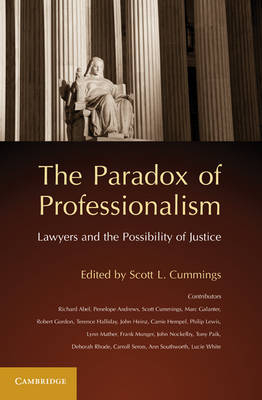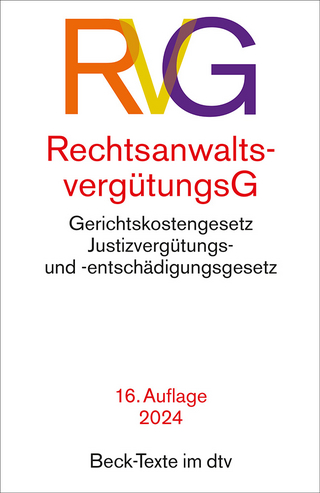
The Paradox of Professionalism
Cambridge University Press (Verlag)
978-0-521-14599-2 (ISBN)
This book is about the role of lawyers in constructing a just society. Its central objective is to provide a deeper understanding of the relationship between lawyers' commercial aims and public aspirations. Drawing on interdisciplinary and comparative perspectives, it explores whether lawyers can transcend self-interest to meaningfully contribute to systems of political accountability, ethical advocacy and distributional fairness. Its contributors, some of the world's leading scholars of the legal profession, offer evidence that although justice is possible, it is never complete. Ultimately, how much - and what type of - justice prevails depends on how lawyers respond to, and reshape, the political and economic conditions in which they practise. As the essays demonstrate, the possibility of justice is diminished as lawyers pursue self-regulation in the service of power; it is enhanced when lawyers mobilize - in the political arena, workplace and law school - to contest it.
Scott Cummings is a Professor of Law at the University of California, Los Angeles, where he is also the faculty coordinator of the Epstein Program in Public Interest Law and Policy. He specializes in the legal profession, law and social change and economic development.
1. Introduction: what good are lawyers? Scott L. Cummings; Part I. Lawyers and the Public Good: The Fundamental Dilemma: 2. Are lawyers friends of democracy? Robert W. Gordon; 3. 'The conscience of society?': the legal complex, religion, and the fates of political liberalism Terence C. Halliday; 4. More lawyers than people: the global multiplication of legal professionals Marc Galanter; 5. Faces of the tort pyramid: compensation, regulation, and the profession John T. Nockleby; Part II. Lawyers and Their Clients: Determinants of Ethical Practice: 6. How and why do lawyers misbehave? Lawyers, discipline, and collegial control Lynn Mather; 7. Aspects of professionalism: constructing the lawyer-client relationship Philip Lewis; 8. Professional regulation and public service: an unfinished agenda Deborah L. Rhode; 9. An innovative approach to legal education and the founding of the University of California, Irvine School of Law Carrie Hempel and Carroll Seron; Part III. Lawyers and Social Change: Mobilizing Law for Justice: 10. Without fear, favor, or prejudice: judicial independence and the transformation of the judiciary in South Africa Penelope Andrews; 11. Lawyers in national policymaking Ann Southworth, Anthony Paik, and John P. Heinz; 12. Cause lawyers and other signs of progress: three Thai narratives Frank Munger; 13. African youth mobilize against garbage: economic and social rights advocacy and the practice of democracy Lucie E. White; 14. Epilogue: just law? Richard L. Abel.
| Zusatzinfo | 13 Tables, unspecified; 1 Halftones, unspecified; 3 Line drawings, unspecified |
|---|---|
| Verlagsort | Cambridge |
| Sprache | englisch |
| Maße | 152 x 228 mm |
| Gewicht | 450 g |
| Themenwelt | Recht / Steuern ► EU / Internationales Recht |
| Recht / Steuern ► Privatrecht / Bürgerliches Recht ► Berufs-/Gebührenrecht | |
| Schlagworte | Gerechtigkeit • Gerichtsbarkeit • Jurist |
| ISBN-10 | 0-521-14599-6 / 0521145996 |
| ISBN-13 | 978-0-521-14599-2 / 9780521145992 |
| Zustand | Neuware |
| Informationen gemäß Produktsicherheitsverordnung (GPSR) | |
| Haben Sie eine Frage zum Produkt? |
aus dem Bereich


